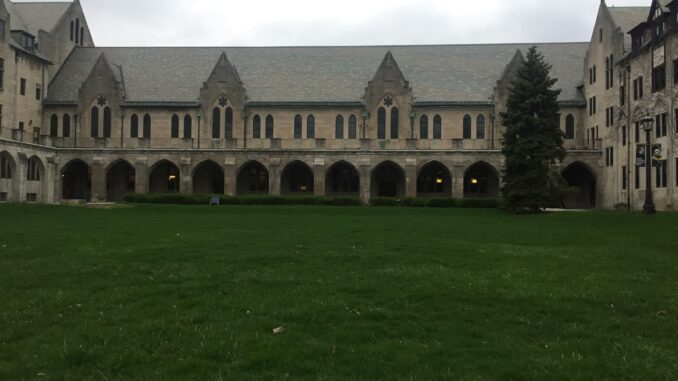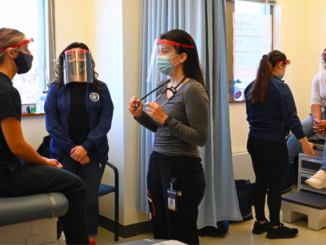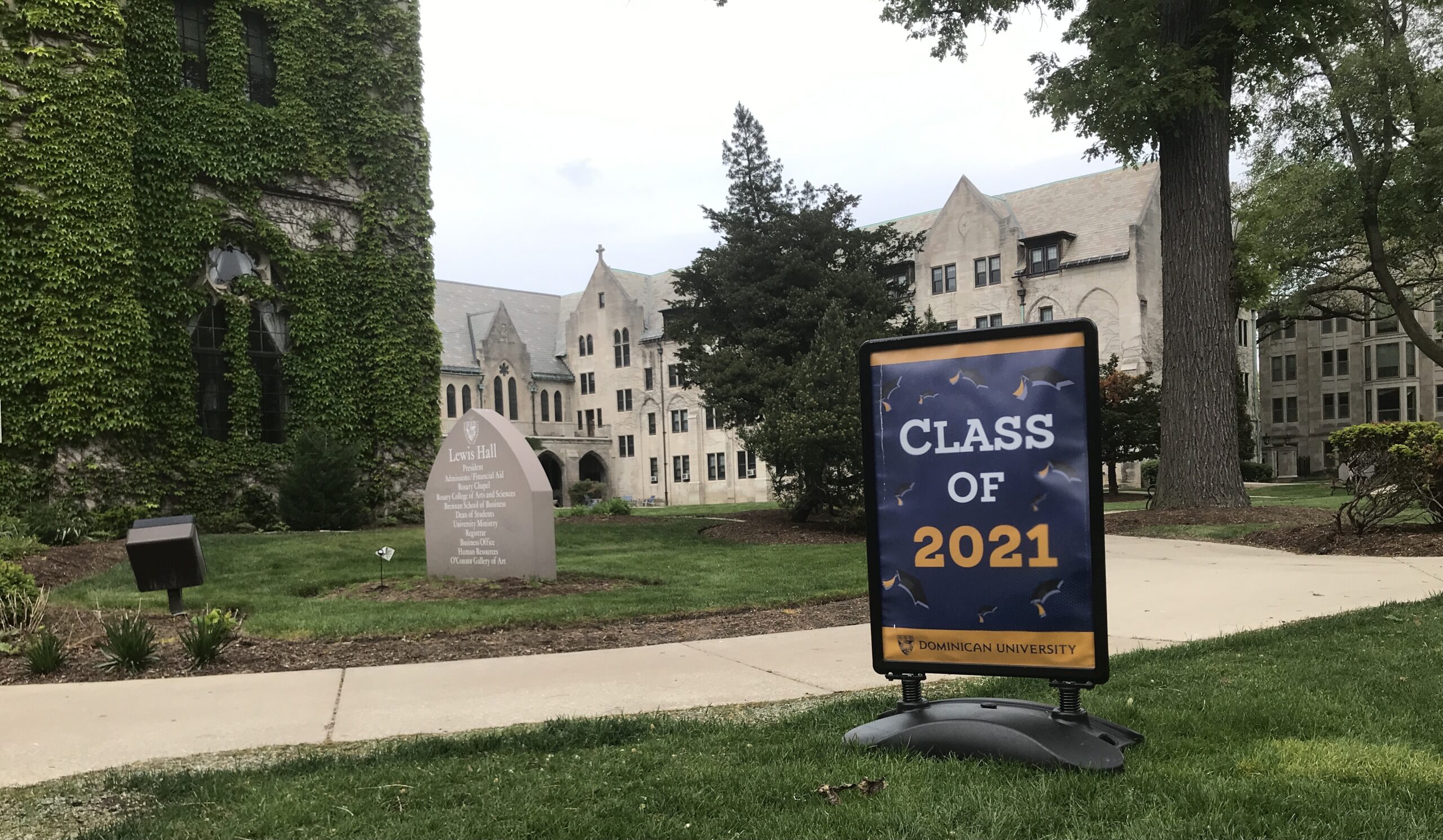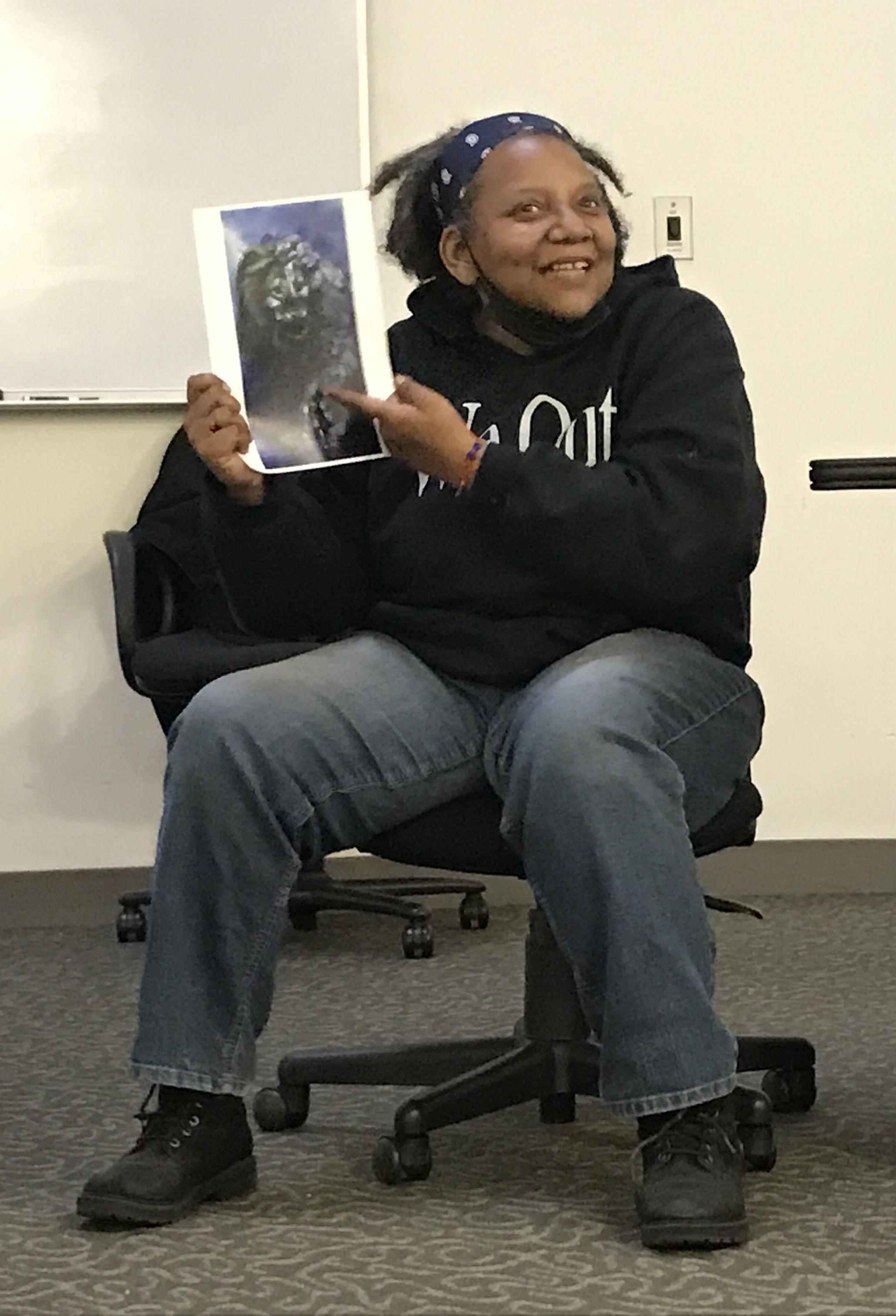
By: Jennifer Lillie
The covid-19 pandemic has produced unplanned stress in our everyday lives, and it’s undeniable that its affects have reached our campus, already. A total of 31 cases have been reported at Dominican, and thousands have been tested (resource: https://mydomedu.sharepoint.com/sites/DUConnect/SitePages/COVID-DashBoard.aspx). This number does not include the cases or deaths of family members or friends, nor does it include cases before the Fall 2020 semester or students who live, care for, or personally interact with senior citizens on an everyday basis.
Jobs have been cut, businesses have closed, crimes have increased, and there is an increased need for social interaction, which has been limited due to social isolation and shelter-in-place measures.
All of these factors indicate how covid-19 has led to mental distress, which may negatively impact the behaviors and grades of students. Students may have increased uncertainties, be struggling with grief, or think nothing can get better.
According to KFF, studies have shown an increase in feelings of loneliness and social isolation for those who shelter-in place. Approximately 50% of people surveyed who lose their jobs due to the economic impact of covid-19 have increased mental health concerns, including symptoms of depression and anxiety.
Almost half of the population who shelters in-place may suffer from increased mental health problems due to the effects of the pandemic, and almost 40% of those who do not shelter-in place also may be suffering, according to these studies. The pandemic impacts everyone through social, societal, economic, and health-related concerns. However, there are resources, both on and off campus that may help.
According to the National Institute of Mental Health, anxiety typically involves a feeling of being out of control of a situation, having fear for your future, a fast heartrate, sweating, and difficulty catching your breath.
There are a variety of ways anxiety can manifest itself, including (but not limited to) generalized anxiety, phobias, and panic attacks. The CDC reports a study that found an increase in anxiety and depression-related disorders, with a total of 40.9% reporting a behavioral/mental health challenge related to covid-19.
Robert Stevens, M.D. of John Hopkins Medicine reports that a severe infection may affect the immune system and blood clotting abnormalities. These blood clotting abnormalities put some COVID-19 patients more at risk of developing strokes.
Covid-19 plays an additional role in the mental health of some people who contract the disease. Problems related to the mental health of those who have the virus include cognitive problems, anxiety, depression, inflammatory/immune response, stroke, and a viral infection of the brain, according to the American Psychological Association.
In the United Kingdom, 31% of patients have an altered mental health status after contracting covid-19. Conditions include (but are not limited to) cognitive decline, anxiety, depression, catatonia, psychosis, and mania.
The majority of patients who displayed an altered mental health status presented some form of psychosis, even though they had never presented symptoms before. However, most patients fully recovered after the covid-19 infection ended. It is important to report any symptoms of covid-19 to your primary care physician, as well as a decrease in mental health to stop the spread and help you heal.
If you are at risk of homelessness or unsure if you can pay your rent, there are options for mental and physical health. The CDC posts helplines for various mental health concerns, as well as resources specifically focusing on covid-19.
The Homeless Shelter Directory surveys homeless people and lists options for free healthcare clinics for the homeless population. There are over 80 clinics that serve the homeless in the Chicagoland area, alone, and the majority are permanent clinics. The Homeless Shelter Directory also lists programs that assist in paying rent and acquiring affordable housing.
If you or someone you know lost their job and is at risk of contracting the coronavirus or any medical illness, there are options. Freeclinnics.com additionally lists over 100 free and income-based clinics in the Chicagoland area for dental, medical, women’s health, adult health, pediatric health, pediatric dental, and behavioral healthcare clinics, among other services. However, if you are in need of mental health services, yourself, and you are looking for support, the Wellness Center at Dominican provides free counseling to all students on campus. All students on campus are invited to seek out free and confidential mental health resources on campus.
Kathleen Janosky (a counselor at the Wellness Center) says,
“We definitely want to be a resource for DU students during this time of Covid. We recognize that this time is difficult for many students and we want them to know they are not alone- support is available.
The Wellness Center is open for both counseling and health appointments. Counseling appointments are free of charge and are conducted via a telehealth platform. All counseling is focused on creating a safe, inclusive and supportive space.
If someone does not have access to a confidential space to meet for telehealth appointments, we can work with them to explore options for that. We can also help students to get connected to outside providers or get affordable health insurance.
We are also a confidential space for students who have experienced sexual assault or domestic violence. We can assist students in getting connected to community resources in those situations. You can schedule counseling appointments through our Wellness Center portal or by calling 708-524-6229 or by emailing wellness@dom.edu.
Students who need health services must call 708-524-6229 to schedule an appointment. Our nurse practitioners are able to take care of general medical care that would be provided in a primary care office. They are also available to talk to students who may have concerns about Covid19.”
There are always options, and Dominican University’s Wellness Center offers free support and guidance with finding the option that will be the most meaningful to you. You are not alone, and all counseling services on campus are free and confidential.
Disclaimer: I am not a licensed therapist, researcher, or representative of any agency.



